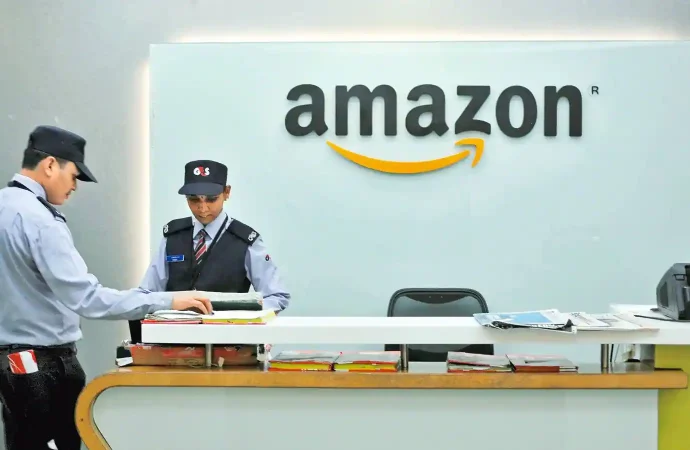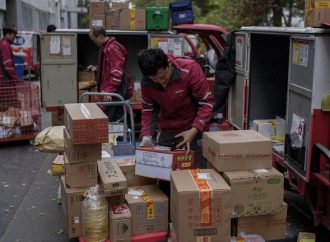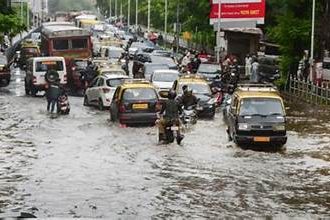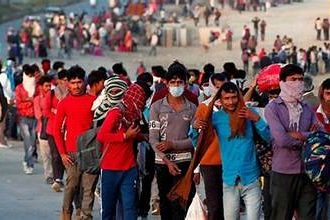Manesar, India — During a severe heat wave from April to June, northern India experienced extreme weather, leading to distressing conditions for workers at an Amazon facility in Manesar, near New Delhi. Workers reported instances of fainting on the job, highlighting concerns about safety and treatment during this challenging period. Rajesh Singh, a 24-year-old employee,
Manesar, India — During a severe heat wave from April to June, northern India experienced extreme weather, leading to distressing conditions for workers at an Amazon facility in Manesar, near New Delhi. Workers reported instances of fainting on the job, highlighting concerns about safety and treatment during this challenging period.
Rajesh Singh, a 24-year-old employee, described witnessing his colleagues faint frequently, leading him to suspect a virus was circulating. Singh and several co-workers chose to speak with NPR reporters at a café, sacrificing a day’s overtime pay to share their experiences. While they appreciate the job’s flexible hours and camaraderie, they believe Amazon must improve worker treatment.
In an email, Amazon stated that it complies with Indian labor laws and prioritizes worker safety. The company claimed its facilities are climate-controlled and that managers can suspend work during extreme heat. However, workers like Neha, who also works at the Manesar facility, reported that they felt pressured to work continuously without adequate breaks, even during the worst heat spells.
Workers Struggle with Break Policies
Amazon workers are entitled to two 30-minute breaks during an eight-hour shift, yet many feel compelled to skip them due to management pressure. This is particularly true during busy periods when processing orders for Amazon’s same-day delivery service. Neha, who requested to use only her first name for fear of retaliation, shared that workers are discouraged from taking restroom breaks or drinking water during peak hours.
The National Human Rights Commission of India intervened in June after reports emerged about workers being coerced into foregoing bathroom breaks until they met daily targets. Amazon characterized this as an isolated incident and stated disciplinary action was taken against those involved.
Despite the company’s claims of having sufficient restroom facilities, workers report feeling pressured not to use them. A 25-year-old employee in Mumbai recounted being reprimanded by his manager for taking a bathroom break, while another worker shared that he avoids drinking water to prevent conflicts at work.
Health Concerns and Unsafe Conditions
Some workers have reported health issues due to the demanding environment. One employee noted that he has experienced significant weight loss and increased health problems, attributing this to the lack of rest during shifts. Others have had to resort to using the restroom as a break space when injured on the job.
While Amazon India management invited NPR to tour their busiest facility, the conditions seen did not align with workers’ experiences. Employees were seen working diligently, but many remain dissatisfied with their treatment and the pressure to meet high productivity standards.
The Push for Better Treatment and Rights
The issue of workers’ rights has gained traction, with some employees expressing solidarity with their counterparts in Staten Island, New York, who successfully unionized in 2022. Labor rights activist Dharmendra Kumar, who founded the Amazon India Workers Association, advocates for better treatment of workers, noting that Amazon sets a standard that other companies may follow.
India’s e-commerce sector is expanding rapidly, and Kumar emphasizes the importance of ensuring fair treatment for workers from the outset. The National Human Rights Commission has requested an investigation into the complaints, but experts express skepticism about the government’s willingness to prioritize labor rights amid the pressing need for job creation.
Rajesh Singh articulated the frustrations of many workers, questioning the consumer’s awareness of the conditions under which their orders are fulfilled. He emphasized, “When you click to order a product, you don’t know how many workers are suffering to make that happen.”


















Leave a Comment
Your email address will not be published. Required fields are marked with *